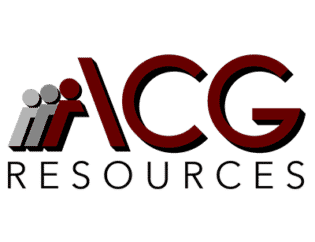1. Why Upskilling HR Matters More Than Ever
In today’s digital-first world, HR teams are expected to wear multiple hats, blending traditional responsibilities with tech-savvy approaches. Upskilling HR not only helps teams stay current with modern tools and compliance requirements but also enhances their strategic impact on the company. From data-driven recruitment to implementing agile employee engagement strategies, a well-skilled HR team is a critical asset.
2. Key Areas for HR Upskilling
Digital Competency
With HR technology advancing rapidly, upskilling in digital tools—such as applicant tracking systems, employee engagement software, and performance analytics—enables HR teams to streamline processes, enhance employee experiences, and improve decision-making.
Data Analytics and Metrics
Data is transforming HR, with analytics playing a major role in tracking performance, turnover rates, and engagement metrics. Upskilling HR in data literacy allows teams to make more informed decisions and measure the real impact of HR initiatives.
Diversity, Equity, and Inclusion (DEI)
As DEI initiatives gain importance, HR teams must understand and implement strategies that foster a more inclusive workplace. Training in DEI principles equips HR professionals to lead initiatives, creating a more supportive and diverse organizational culture.
Change Management and Resilience
Upskilling in change management enables HR teams to help employees navigate transitions smoothly, whether due to technology shifts, structural changes, or new policies. Building resilience within HR teams prepares them to support staff through any future changes.
.
3. The Benefits of HR Upskilling
Enhanced Efficiency and Productivity
Upskilling enables HR teams to leverage new technologies and methodologies, making processes more efficient. Streamlined workflows and automation tools free up HR professionals’ time, allowing them to focus on strategic initiatives rather than manual tasks.
Improved Employee Retention and Engagement
When HR teams are skilled in modern engagement strategies, they can foster a workplace culture that supports employee growth and satisfaction. This, in turn, leads to higher retention rates and a more engaged workforce.
Elevated Strategic Role
Upskilling positions HR as a vital partner in business strategy. Skilled HR professionals can contribute to talent management, succession planning, and performance optimization in ways that directly impact the company’s success.
4. How to Implement an HR Upskilling Program
Assess Current Skills and Identify Gaps
Start by conducting a skills assessment to identify areas where your HR team needs upskilling. This can include surveys, feedback sessions, and self-assessments, providing a clear picture of where development is needed.
Create Tailored Learning Pathways
Develop training programs that cater to specific skill areas, such as digital tools, DEI, or change management. Offering a blend of online courses, workshops, and mentoring ensures that HR professionals can learn in ways that fit their schedules and learning styles.
Encourage Continuous Learning
Upskilling should be an ongoing effort, not a one-time initiative. Encourage HR teams to participate in webinars, attend industry events, and stay updated on trends. Creating a culture of continuous learning helps HR professionals stay agile and prepared for the future.
Conclusion
Prioritizing HR upskilling isn’t just about adapting to the latest trends—it’s about building a resilient, future-ready team that can drive meaningful change across the organization. By focusing on upskilling in critical areas and fostering a culture of continuous learning, businesses can equip their HR teams with the skills to thrive in a dynamic environment, ultimately leading to stronger organizational growth and employee satisfaction.








